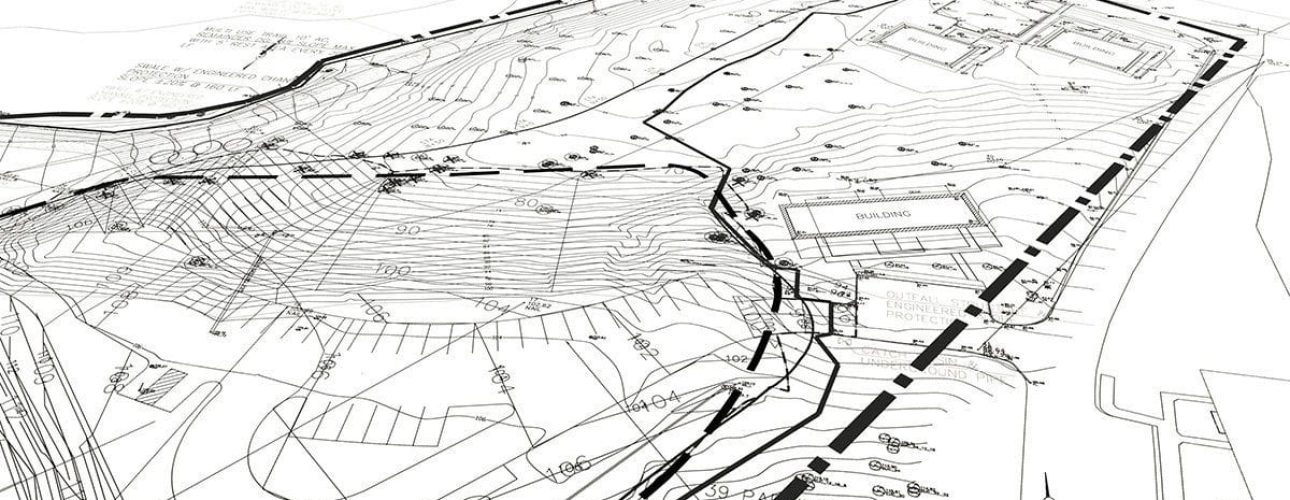Frequently Asked Questions
What is the role of commercial development engineers in Utah?
The role of commercial development engineers in Utah involves designing and overseeing projects that facilitate the construction of commercial properties. They ensure compliance with regulations, optimize land use, and contribute to sustainable development practices, enhancing local infrastructure and community growth.
What is the importance of commercial development engineers in Utah?
The importance of commercial development engineers in Utah lies in their expertise in designing infrastructure that meets regulatory standards while fostering economic growth. They ensure that projects are viable, sustainable, and enhance community development, contributing significantly to the state's progress.
How do Utah engineers facilitate commercial property development?
Utah engineers facilitate commercial property development by providing essential design and planning services, ensuring regulatory compliance, and offering innovative solutions to navigate the complexities of site development, ultimately leading to successful and sustainable projects.
Can Utah engineers assist with commercial land acquisition and development?
Utah engineers can assist with commercial land acquisition and development by providing expertise in regulatory compliance, site analysis, infrastructure planning, and design solutions, ensuring that projects meet local standards and are efficiently executed.
What skills are essential for commercial development engineers?
The essential skills for commercial development engineers include strong problem-solving abilities, proficiency in project management, technical expertise in engineering principles, effective communication, and a solid understanding of regulatory requirements and environmental impacts.
How do engineers assess site suitability for development?
Engineers assess site suitability for development by analyzing topography, soil conditions, environmental impacts, and existing infrastructure to determine if the site can support intended construction projects while adhering to regulatory requirements.
What challenges do engineers face in Utah projects?
The challenges engineers face in Utah projects include navigating stringent regulatory requirements, addressing environmental concerns, managing complex terrain, and ensuring sustainable resource use, all while adapting to the unique geographical and climatic conditions of the state.
How do commercial development engineers optimize project budgets?
Commercial development engineers optimize project budgets by conducting thorough feasibility assessments, implementing efficient design strategies, and leveraging technological tools to streamline processes. This ensures cost-effective solutions while maintaining quality and compliance with regulatory standards.
What technology do engineers use for project management?
The technology engineers use for project management includes tools like project management software (e.g., Microsoft Project, Trello), Building Information Modeling (BIM), Geographic Information Systems (GIS), and collaboration platforms that streamline communication and enhance workflow efficiency.
How do engineers collaborate with local governments in Utah?
Engineers collaborate with local governments in Utah by providing expertise on infrastructure projects, ensuring compliance with regulations, and facilitating community development through strategic planning and design solutions tailored to meet the specific needs of municipalities.
What regulations impact commercial development in Utah?
Regulations that impact commercial development in Utah include zoning laws, building codes, environmental regulations, and permitting processes. These regulations ensure that developments meet safety, sustainability, and community standards while facilitating compliance for project managers and developers.
What steps are involved in land acquisition?
The steps involved in land acquisition include identifying the desired property, conducting feasibility studies, negotiating terms with the seller, performing due diligence, securing financing, and finalizing the purchase through legal documentation and closing processes.
How do engineers evaluate environmental impacts of projects?
Engineers evaluate the environmental impacts of projects through comprehensive assessments that include analyzing potential effects on air and water quality, ecosystems, and local communities, ensuring compliance with regulations and promoting sustainable development practices.
What role do engineers play in zoning compliance?
The role of engineers in zoning compliance involves ensuring that projects adhere to local regulations and zoning laws. They assess plans, provide technical guidance, and facilitate the necessary permits for developments, thereby helping to create functional and compliant environments.
How can engineers improve community infrastructure through development?
Engineers can improve community infrastructure through development by designing and implementing projects that enhance transportation systems, manage water resources, and provide sustainable solutions that promote safety, accessibility, and environmental resilience for residents and stakeholders.
What are the latest trends in commercial development engineering?
The latest trends in commercial development engineering include a focus on sustainable design practices, advanced construction technologies, and smart building integration. These trends aim to enhance efficiency, reduce environmental impact, and improve user experiences in developed spaces.
How do engineers manage contractor relationships in Utah?
Engineers in Utah manage contractor relationships by fostering clear communication, setting defined expectations, and conducting regular site visits to ensure compliance with project specifications and timelines, ultimately facilitating successful collaboration and project completion.
What metrics do engineers use to measure project success?
Engineers measure project success using various metrics such as budget adherence, timeline fulfillment, quality standards, stakeholder satisfaction, and regulatory compliance, ensuring the project meets its goals efficiently and effectively.
What certifications are beneficial for Utah engineers?
Certifications that are beneficial for Utah engineers include Professional Engineer (PE), Engineer-in-Training (EIT), and various specialized certifications in land surveying, environmental engineering, and structural design. These credentials enhance professional credibility and ensure compliance with state regulations.
How do commercial development engineers ensure project timelines?
Commercial development engineers ensure project timelines by meticulously planning, coordinating with stakeholders, adhering to regulations, and conducting regular progress assessments to identify and mitigate potential delays. This proactive approach fosters efficient project execution and timely completion.
What design factors do engineers prioritize in commercial projects?
Engineers prioritize several key design factors in commercial projects, including safety, functionality, sustainability, cost-effectiveness, and compliance with regulations. These elements ensure that the projects are not only buildable but also environmentally responsible and aligned with community needs.
How do engineers incorporate sustainability in their designs?
Engineers incorporate sustainability in their designs by integrating environmentally-friendly materials, optimizing energy efficiency, reducing waste, and considering the lifecycle impact of projects to create resilient and eco-conscious structures that benefit communities and the environment.
What are the key phases of commercial construction?
The key phases of commercial construction include project initiation, design and planning, permitting and approvals, construction, and project completion. Each phase is essential for ensuring the project runs smoothly and meets regulatory standards.
How do engineers resolve conflicts during the development process?
Engineers resolve conflicts during the development process by fostering open communication among all stakeholders, identifying issues collaboratively, and employing negotiation techniques to find mutually acceptable solutions, ensuring that projects remain on track and meet regulatory requirements.
What types of projects do commercial engineers typically handle?
Commercial engineers typically handle a variety of projects that include the design and construction of office buildings, retail spaces, industrial facilities, and infrastructure improvements. Their work ensures that these projects are structurally sound, efficient, and compliant with regulations.
How does collaboration enhance engineering project outcomes?
Collaboration enhances engineering project outcomes by leveraging diverse expertise and perspectives, fostering innovative solutions, and improving communication among stakeholders. This collective approach ensures that projects are completed efficiently, meet regulatory requirements, and ultimately serve the community better.
What impact do engineers have on local economies?
The impact engineers have on local economies is substantial. They drive innovation, create jobs, and enhance infrastructure, which together stimulate economic growth and improve the quality of life in communities.
How do engineers address community feedback in development?
Engineers address community feedback in development by actively engaging with local stakeholders through meetings, surveys, and consultations. This input is integrated into project planning to ensure designs align with community needs and concerns, fostering collaboration and support.
What role do engineers play in project financing?
The role of engineers in project financing involves evaluating project feasibility, estimating costs, and ensuring compliance with regulatory standards. Their technical expertise helps secure funding by presenting detailed plans that demonstrate the project's viability and potential return on investment.
How can engineers ensure safety in construction practices?
Engineers ensure safety in construction practices by adhering to rigorous safety standards, conducting thorough risk assessments, and implementing effective safety management systems throughout the project lifecycle. This proactive approach minimizes hazards and promotes a safe work environment.





